
I am particularly grateful that LA Opera has taken such strides in the last few seasons to expand its recital series. Back when I was a neophyte opera lover, we had two big concert venues for visiting opera royalty: Royce Hall at UCLA (where I attended my very first recital ever with Leontyne Price) and the Ambassador Auditorium in Pasadena. For whatever reason, neither of these programs continue now but I have wonderful memories of both theaters, most especially because my first voice coach Adele Gray, who loved me like a son, tried to bash as much of the song literature into my thick tenor skull as she had the infinite patience for. She always used to say that I knew more operatic repertoire than she did but she had a wide ranging love for German Lied and French Mélodie and I am the better for it.
That is why I was just moderately excited when LA Opera announced that French tenor Benjamin Bernheim would be coming to concertize at the Wallis Annenberg Center for the Performing Arts in Beverly Hills, 90210. (As a matter of fact, that neighborhood of Los Angeles is designated as the BHPO -Beverly HIlls Post Office.) The gorgeous Renaissance Revival building that was the Post Office was closed in 1999 and sold back to the city of Beverly Hills, but not before it was added to the National Register of Historic Places in 1985.
At some point the great arts and education philanthropist Wallace Annenberg took up the cause and in 2003, construction began to save the original building and build a two-theater complex onto it on the block of prime real estate it occupied. It gave us the 500-seat Goldsmith Theater and the 150-seat Lovelace Studio Theater as well as a lovely promenade terrace and a sculpture garden off the main lobby with the most beautiful weeping walls. My sincere thanks to Ms. Annenberg and all of the generous souls who fight so hard to make our cultural life richer; we all know where we’d be if we had only our government on which to rely for arts funding, even in the best of times.
Mr. Bernheim has just released his third album with his label Deutsche Grammophon entitled Douce France which offers up a varied repertoire of music by the great French Romantic composers and a little music hall as an encore of sorts, all with piano accompaniment. This was Mr. Bernheim’s North American recital debut which started in San Juan before he heads over to the continent and he was given an exceptionally warm welcome by an audience of obvious Francophile connoisseurs.
He opened the program with Charles Gonoud’s “L’absent” and followed with Reynaldo Hahn’s “L’heure exquise,” neither of which were tracks on the recent release but were both welcome. I’d never heard the Gonoud at all and it has a particularly beautiful harp-like underscoring. The delicate Hahn piece I’m very familiar with and Mr. Bernheim’s dexterity in his use of voix mixte was most welcome.
He ended the first half with Ernest Chausson’s “Poème de l’amour et de la mer” which is two long songs joined by a piano interlude. Its elegiac qualities were brought forward by both Mr. Bernheim and his very talented pianist, Carrie-Ann Matheson.
The music of the first half mostly tended to introspective reveries and subsequently our tenor’s interpretations were in the same vein. He was careful with his emotions but not his singing, so much so that he sang the first two pieces almost completely with his eyes closed. His demeanor on the platform also tended to a certain stiffness which seemed odd, as I’d already seen him twice on video in operatic performances where he seemed nothing if not involved and ductile.
Apparently all we needed to get Mr. Bernheim out of his shell was a little Berlioz. After the break he offered up three of the composer’s “Les nuits d’été.” In a change from the printed program, he gave us a charming and piquant “Villanelle” which he offered with a twinkle in his eye. Then, an absolutely rapturous “Le spectre de la rose” with a great opening up of emotion and absolutely stunning, long-breathed, phrasing. The final “Sur les lagunes” is arguably a tough sing for a tenor with its especially wide range, but there’s no question he made a success of it. I wasn’t even aware that these songs had originally been written for piano accompaniment, and arranged for all voice types (save bass), having been so used to the familiar soprano/mezzo orchestral version.
Our tenor gave us a welcome from the stage and informed us that in the next set of three Henri Duparc songs they would be substituting the announced, “Extase” with “Chanson triste”. His “L’invitation au voyage” was just about all you could want and Ms. Matheson once again showed us what an able accompanist she was as the two of them surrounded us with that special aural perfume that only Duparc can conjure. Closing that portion with an amorous but beautifully nuanced, “Phidylé”.
We then got three modern “Boulevard” pieces. Joseph Kosma’s “Les feuilles mortes” (which most of us know as Johnny Mercer’s “Autumn Leaves”), Charles Trenet’s “Douce France,” and Jacques Brel’s “Quand on n’a que l’amour.” All proved conclusively that if Mssr. Bernheim’s high notes ever give out he’s got a second career waiting for him as a chanteur.
As an encore we got Gabriel Faure’s “Hymne à Apollon” which he sang at the closing ceremonies of the Paris Olympics which was nice to hear sans the fog machines, Cirque du Soleil acrobats and excessive reverb to say nothing of the French superhero costume with cape. He then rang us all out with Werther’s “Pourquoi me réveiller” and I hope we get some sort of widely available document of him in that role soon.
Throughout the evening his phrasing – as well as, most especially, his diction — was absolutely sovereign. It’s such a pleasure to hear anyone sing French this well because it is so very rare. The beautiful balance of the passionate and elegant that he captured so well is rarer still. He has a bright, sunny tone that really opens up powerfully to a ringing top when he needs it. The frosting is his exquisite word coloring.
The contribution of Ms. Matheson cannot be underestimated. Mr. Bernheim seemed all too aware as throughout the evening he bowed only with her, only taking a very brief solo bow at the evening’s end. She also did the very lovely transcriptions for the Berlioz to tailor them specifically to his gifts.
Speaking of tailoring, our tenor was business-casual in a black suit with an open-collared white shirt, which I didn’t mind. The house lights were kept at half so we could read the texts in our programs, rather than providing the supertitles which seems more and more common nowadays for recitals. In a house this small, I think it bridged the distance that constantly referring to the screen above the proscenium brings, making his performance that much more immediate. There’s no question that Mr. Bernheim is a singer and communicator of the very highest order and I hope we see more of him. So, as they say, Vive la France!
Photo: Christine Bush, CAMI Music LLC

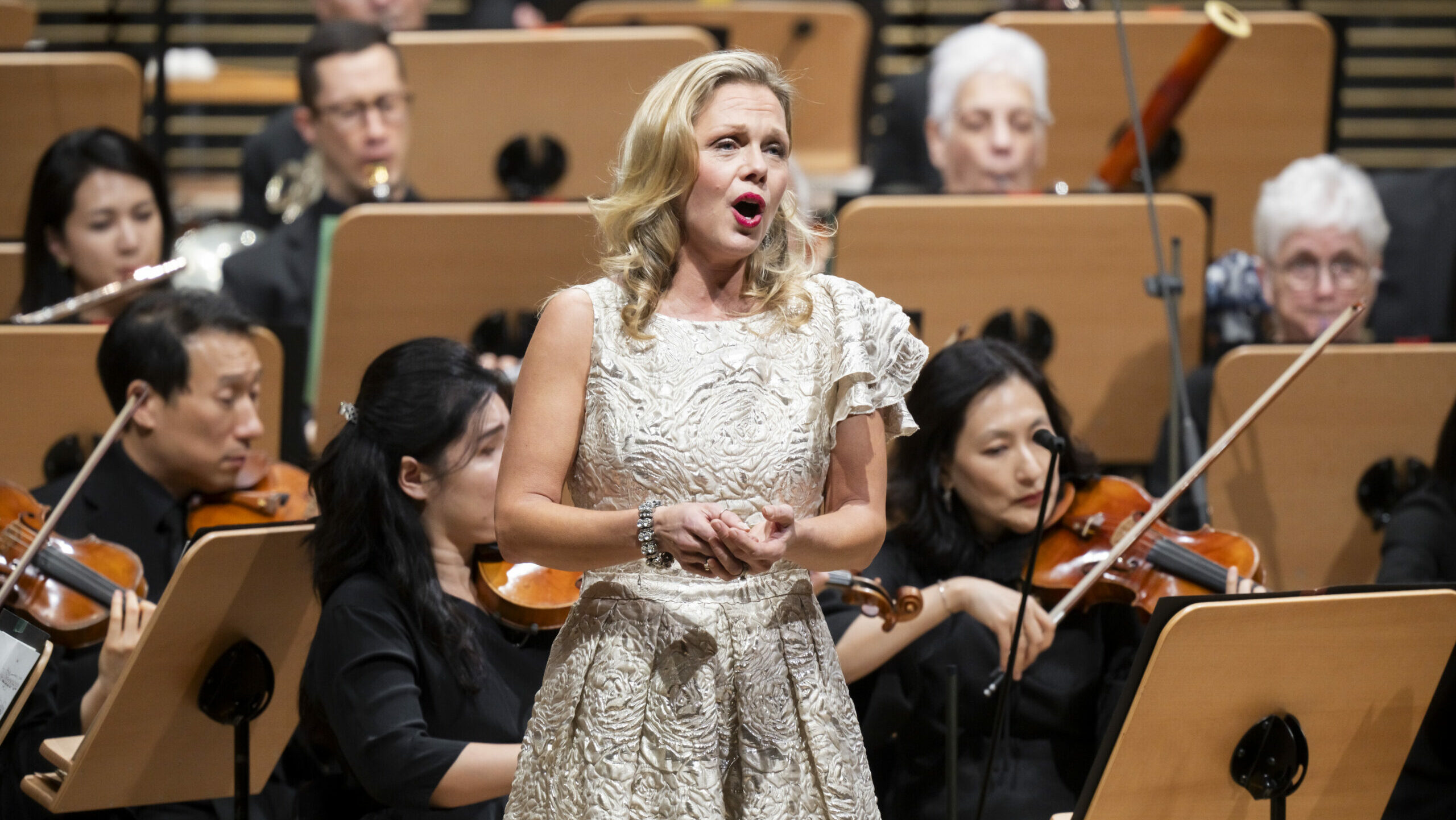
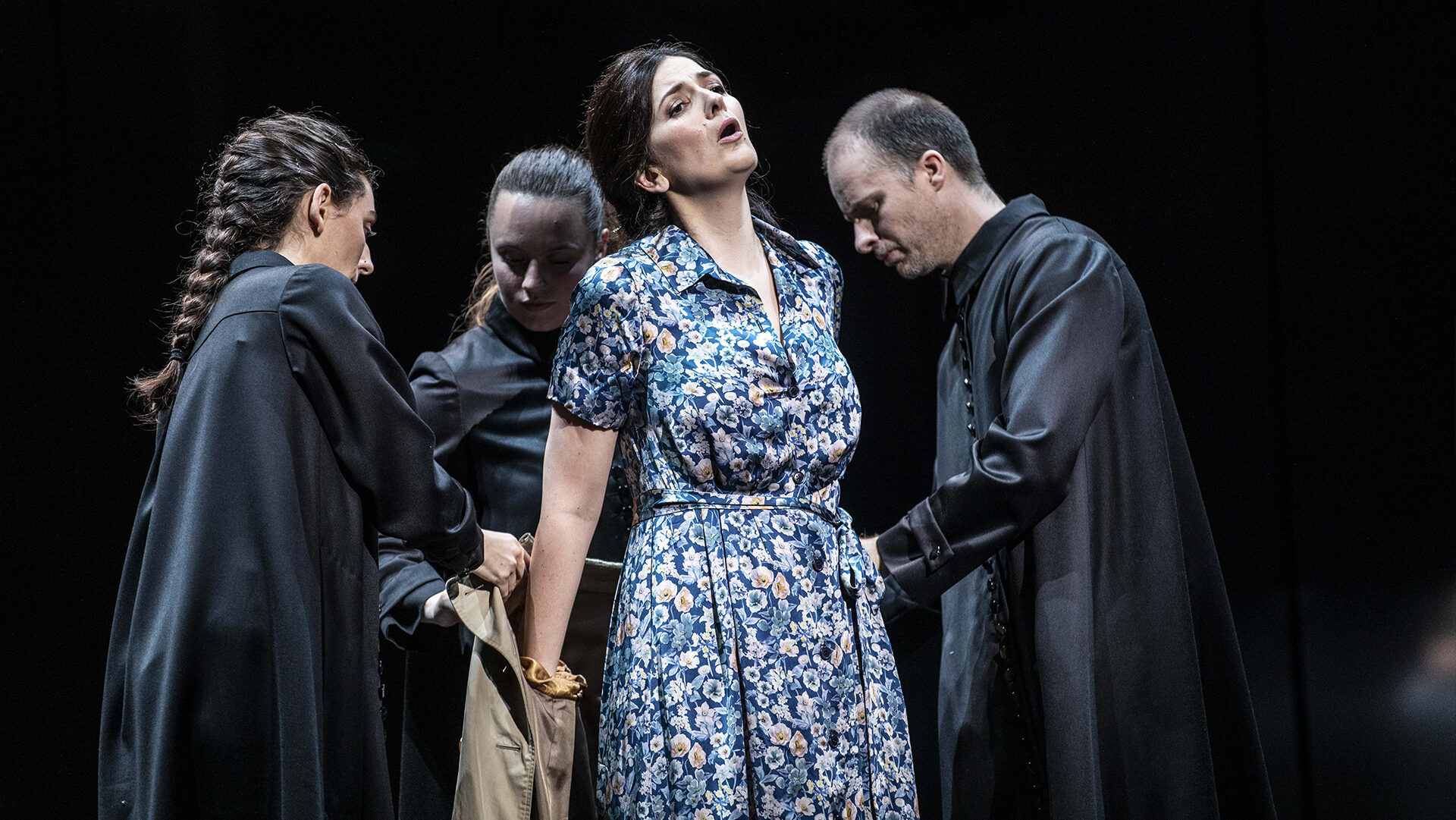
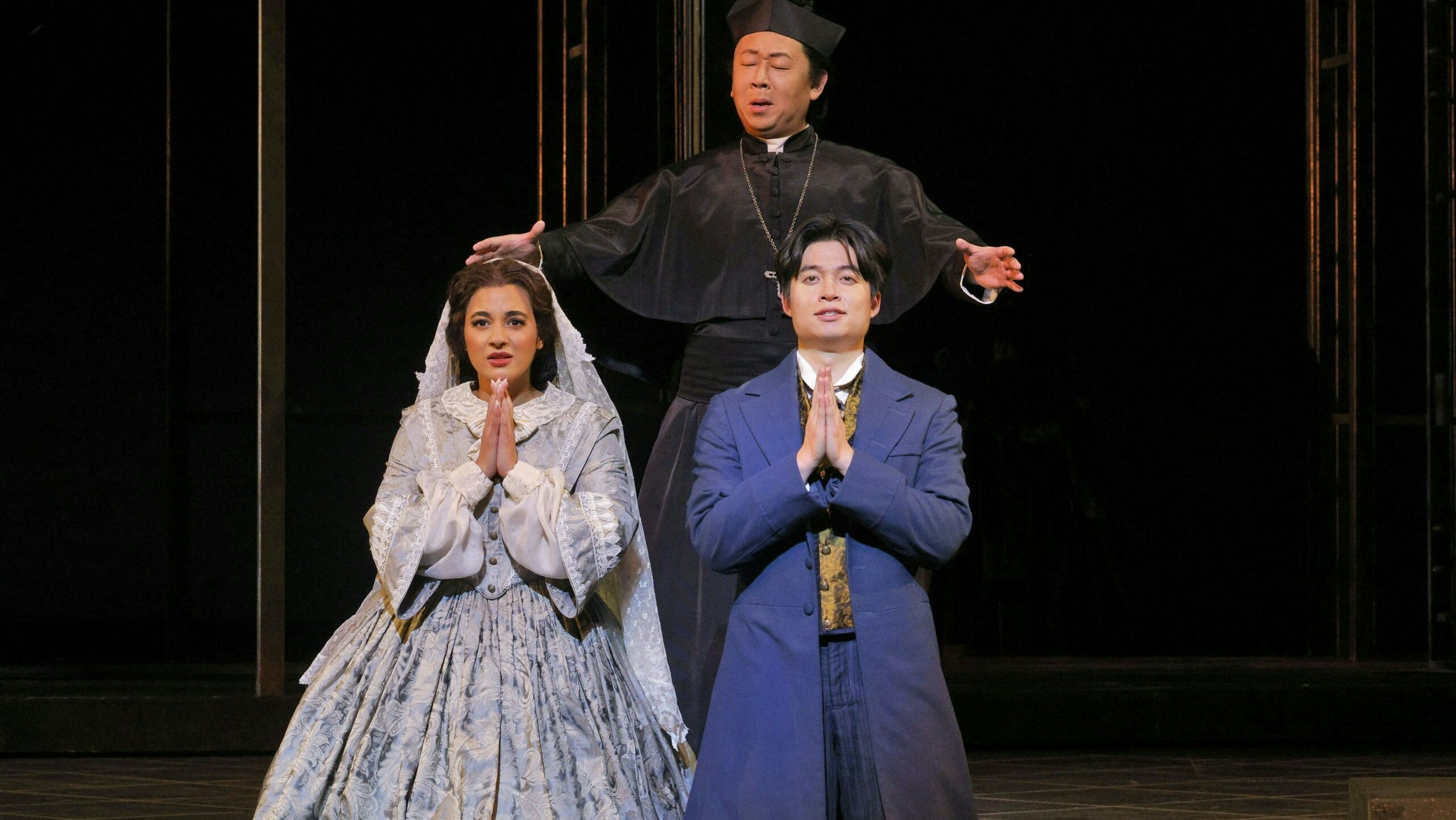
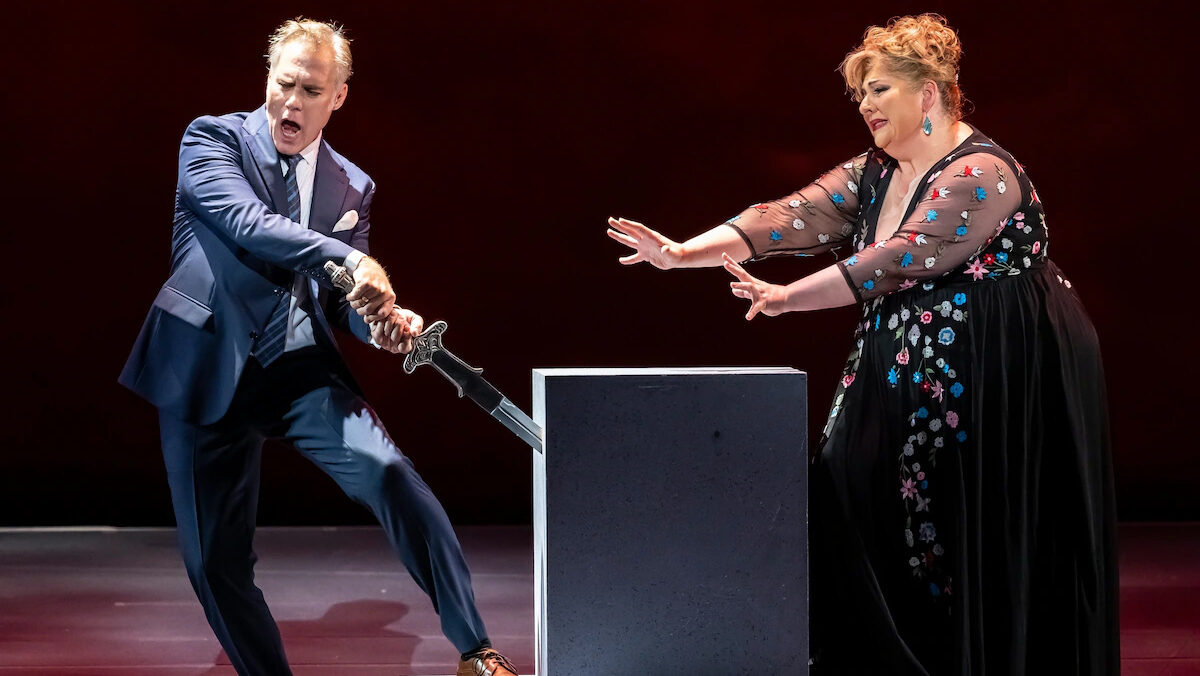
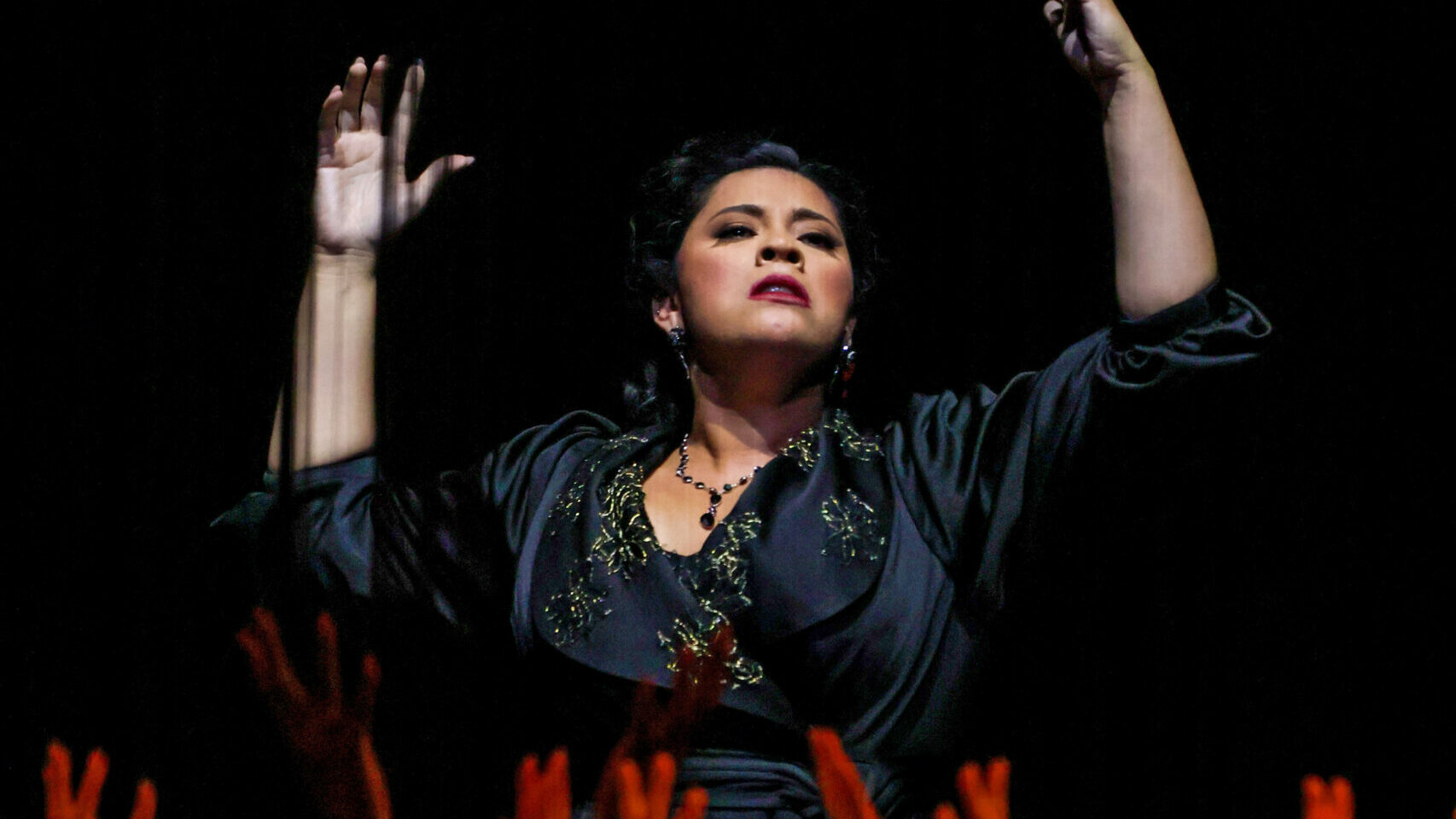
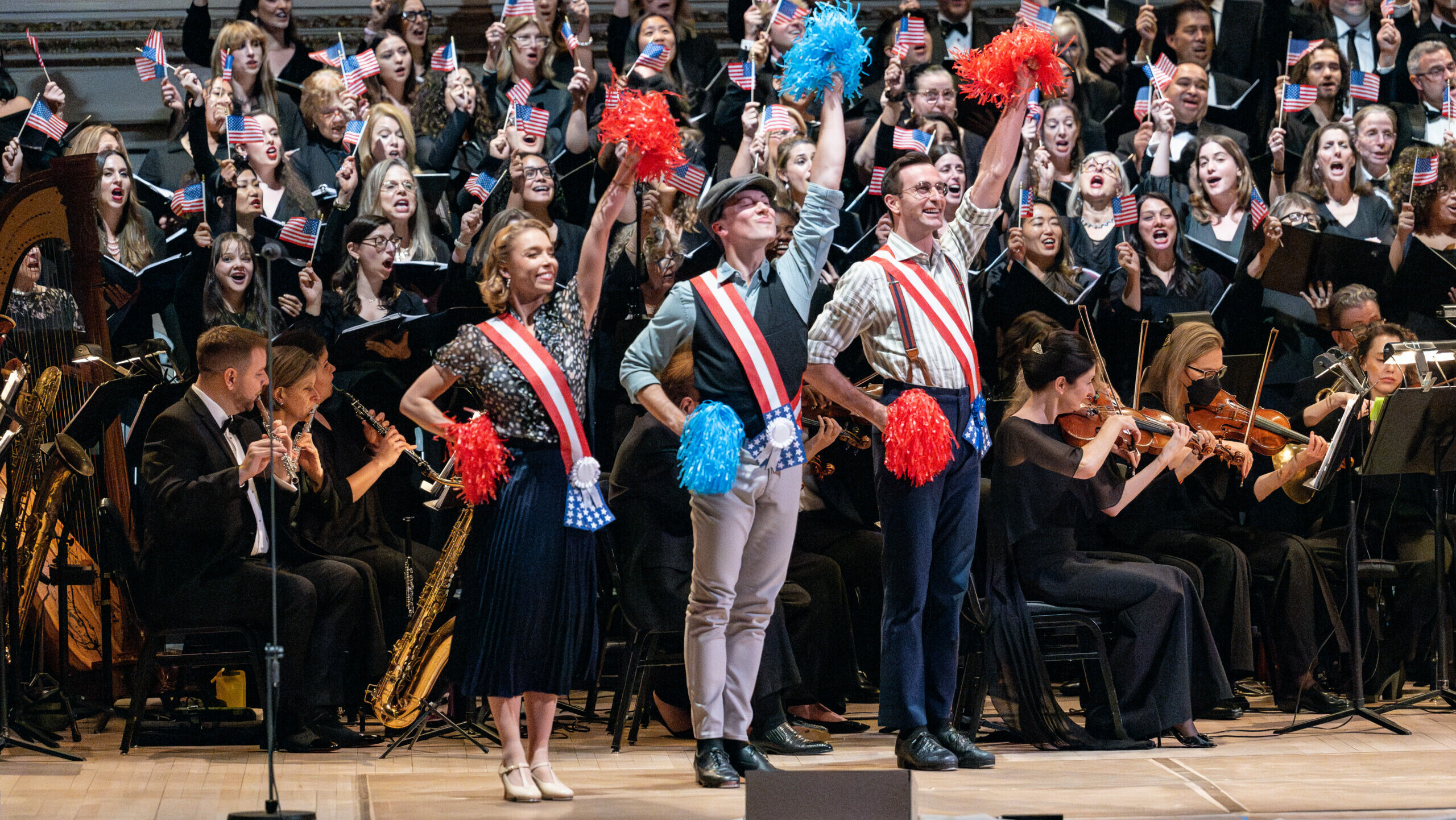
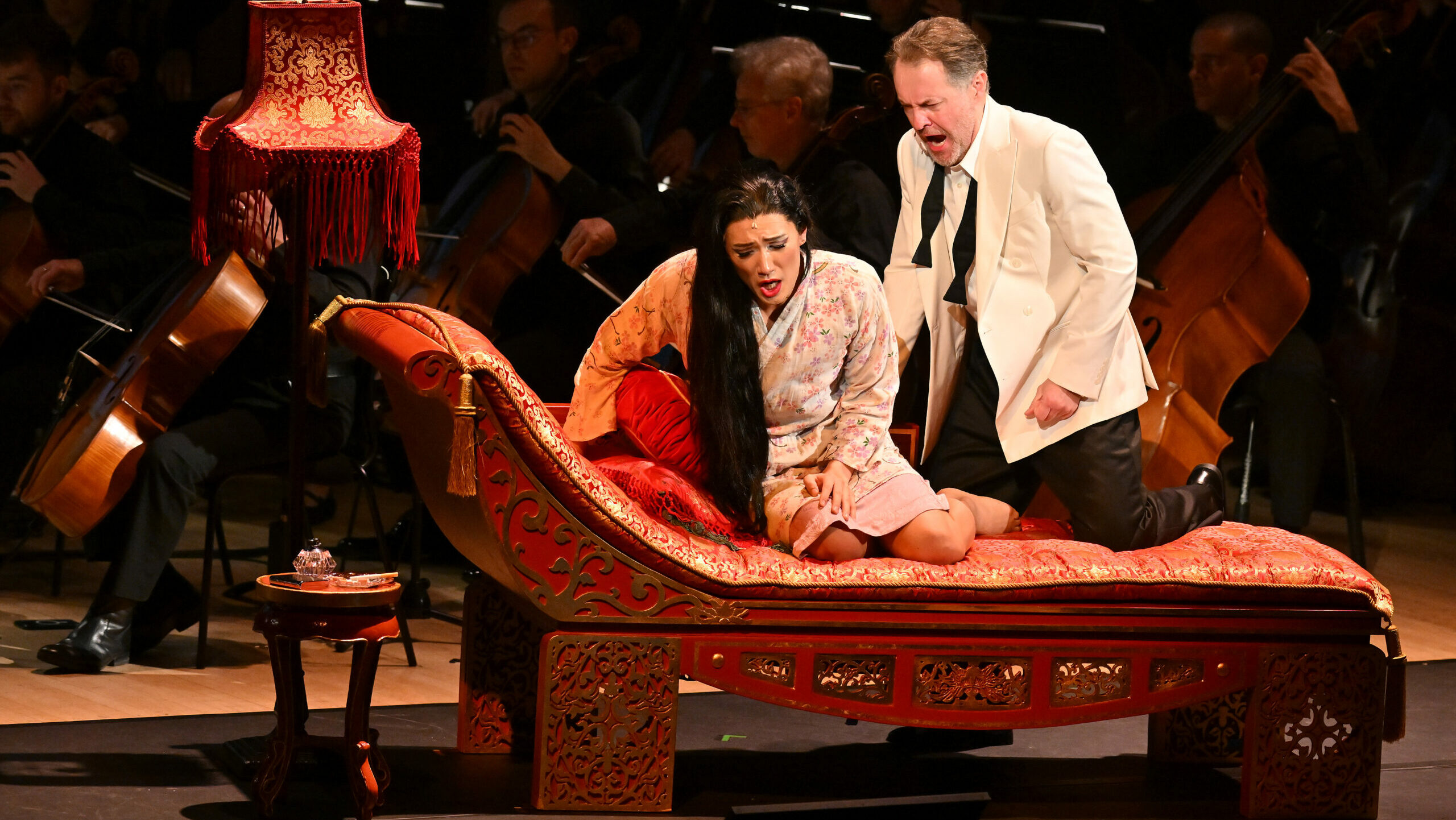
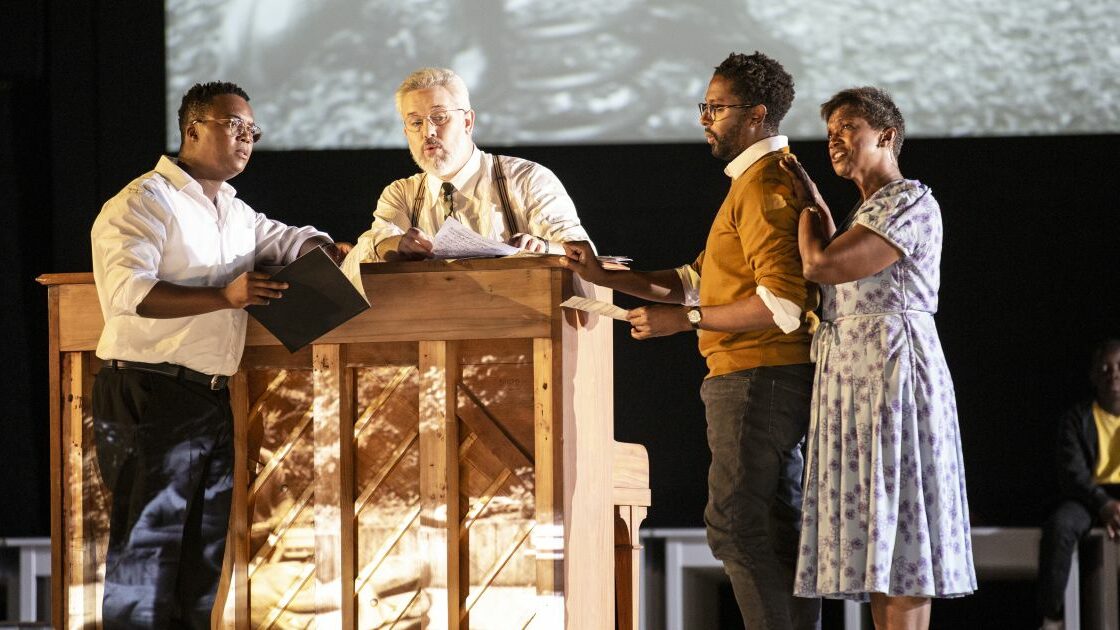
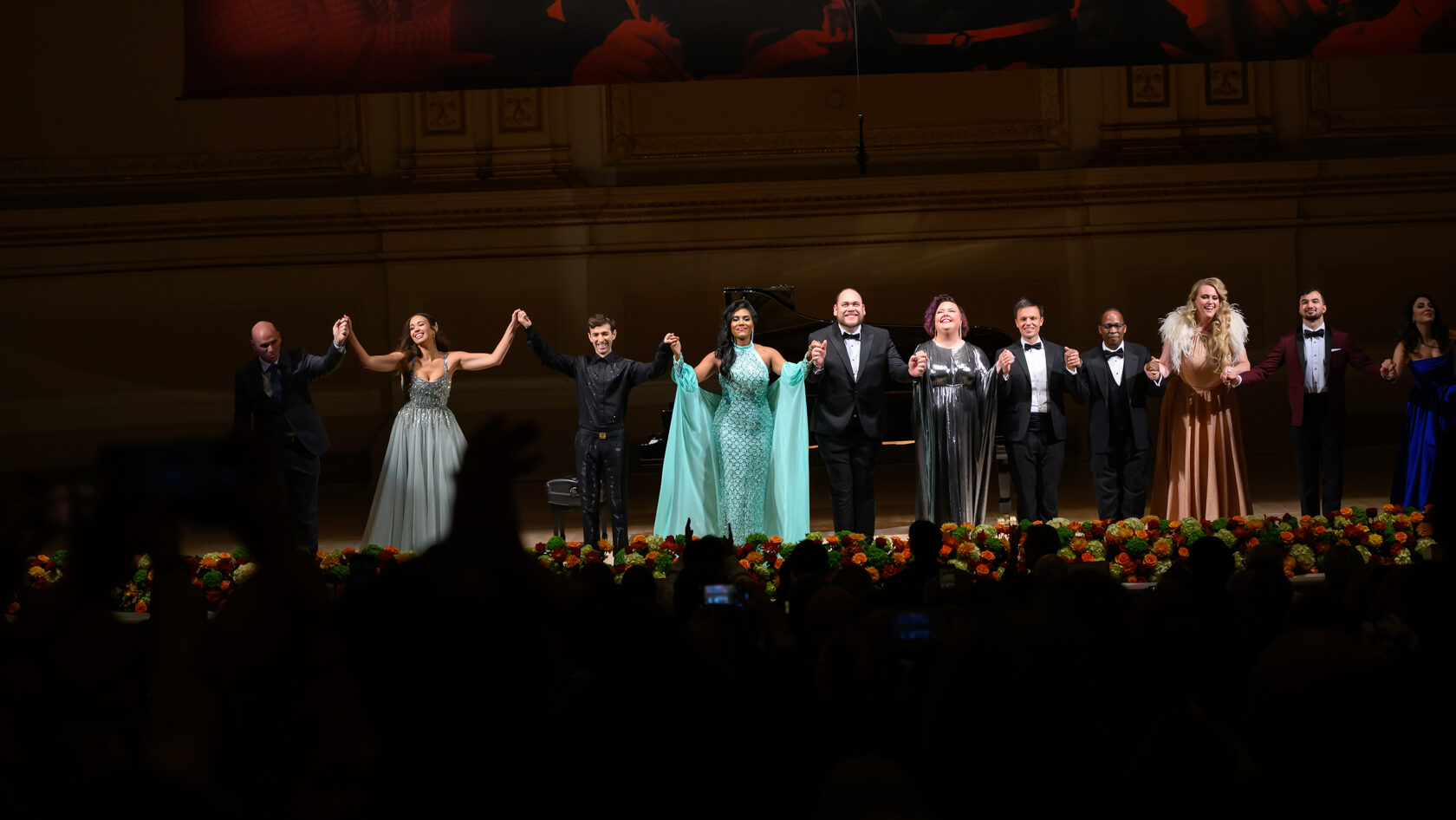

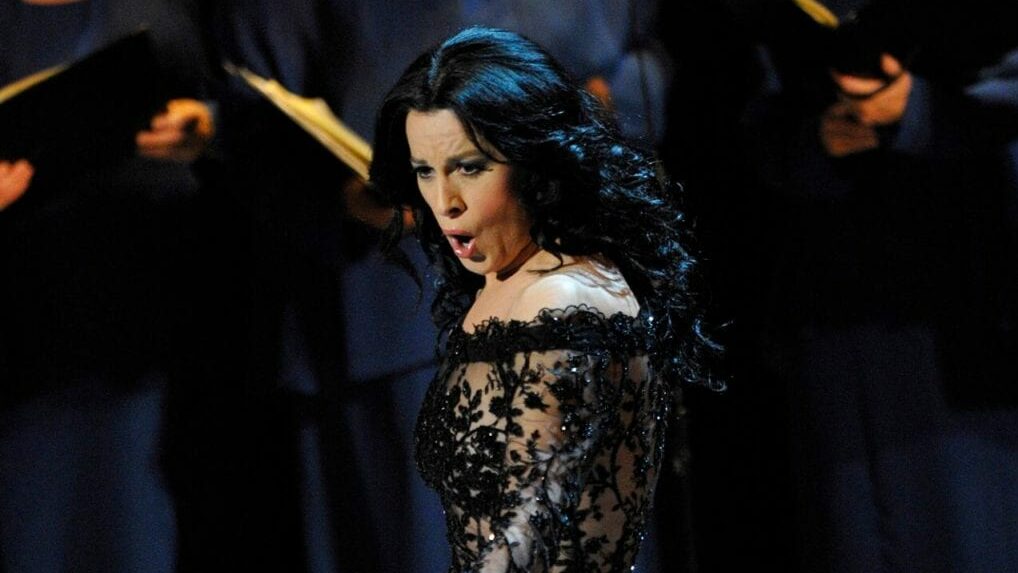
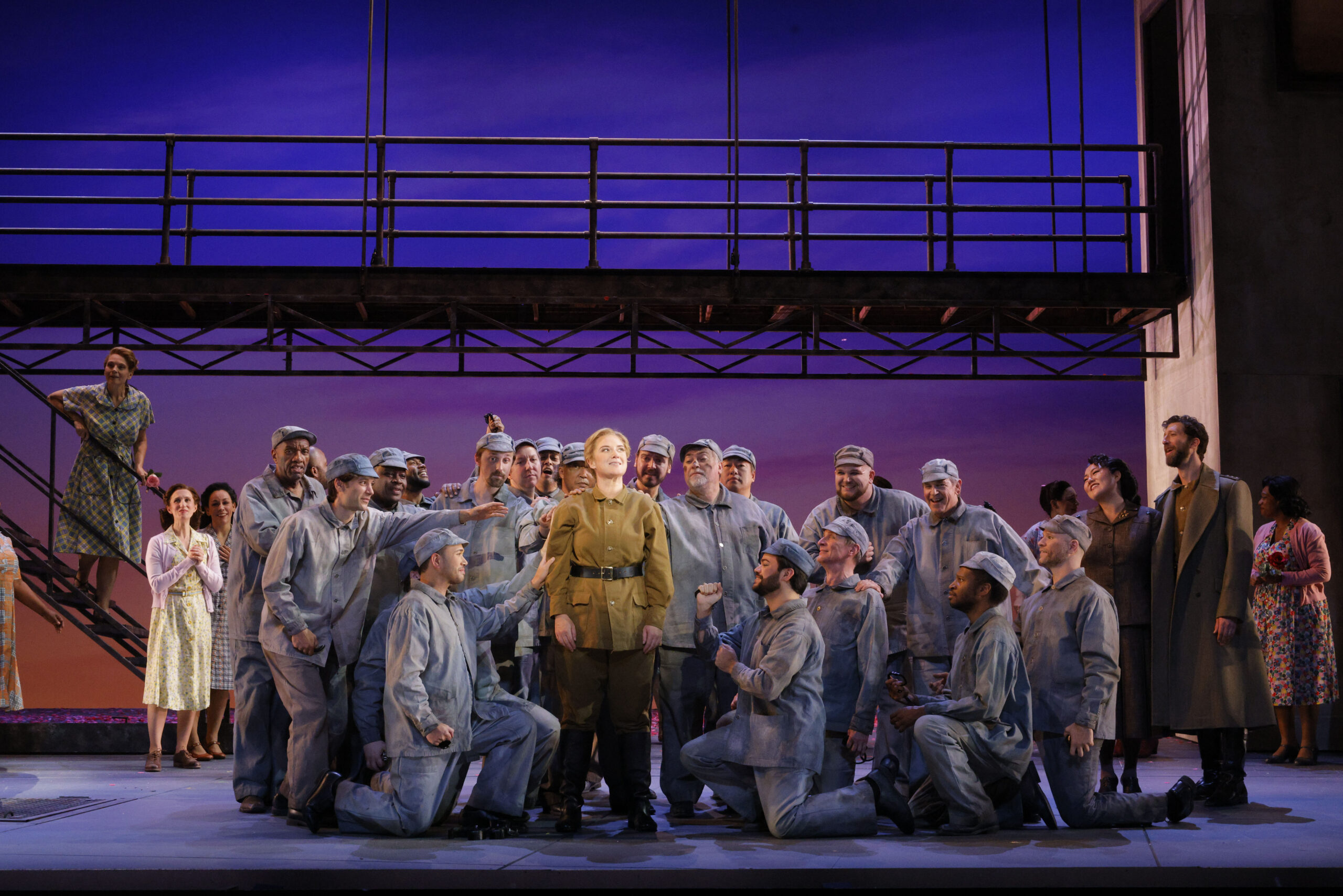
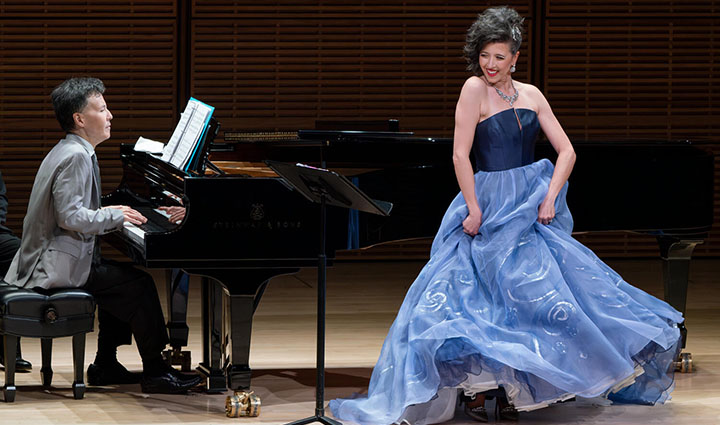

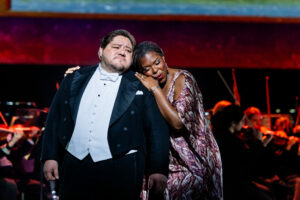

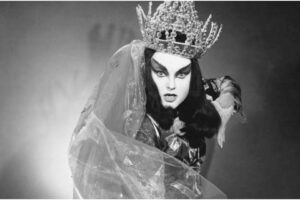
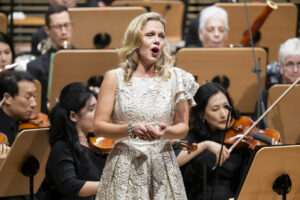

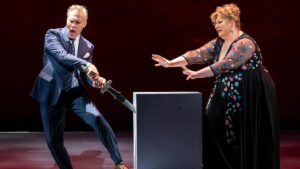
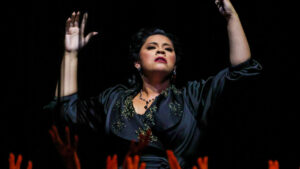



Comments